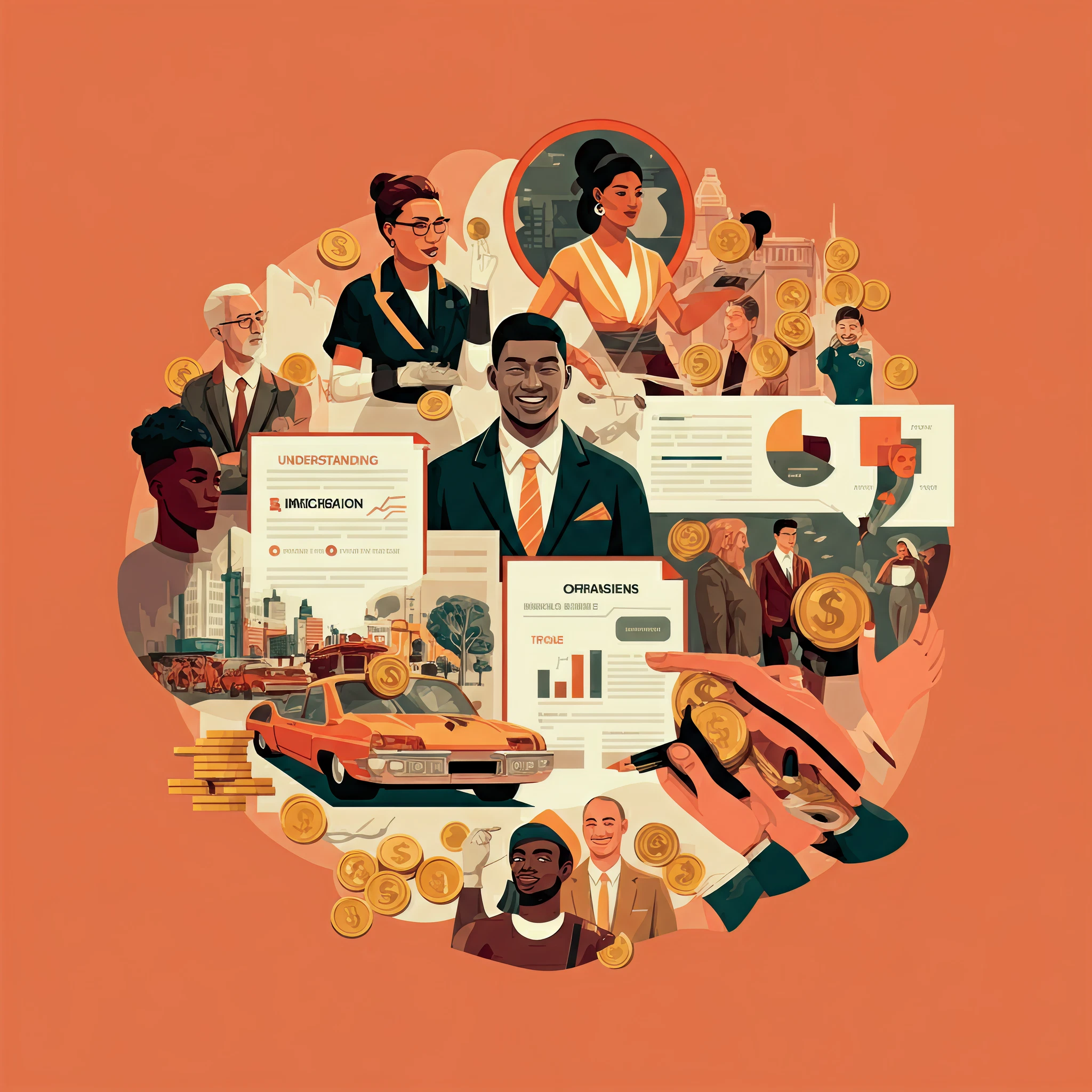Immigration is one of the most talked-about and debated topics globally. It often stirs strong opinions, divides political factions, and raises questions about economics, culture, and ethics. For students, understanding immigration means navigating a maze of historical complexities, legal frameworks, and ethical considerations. This blog aims to help you unpack this multifaceted issue by examining immigration’s history, economic impacts, cultural implications, policies, and ethical dimensions. By the end, you’ll have a well-rounded perspective and the tools to form your own informed opinions.
The Historical Context of Immigration
Immigration has always been a defining feature of human history. People have migrated across continents for centuries, seeking better opportunities, escaping conflict, or pursuing freedom.
For instance, in the 19th century, millions of Europeans emigrated to the Americas, driven by economic poverty and political unrest in their homelands. Similarly, waves of migration in the wake of World War II helped rebuild shattered economies. Fast forward to today, and migration continues, with millions of people moving across borders annually for work, education, or safety.
Historical migration often shaped the countries we know today. The United States, for example, was built largely by immigrants from around the world. Yet, history also shows us that immigration has historically been accompanied by tensions over integration, competition for resources, and national identity. These historical patterns provide a backdrop for the modern immigration debate.
Economic Impacts of Immigration
When discussing immigration, one of the biggest conversations centers on its economic impact. Immigration undoubtedly plays a significant role in economies, bringing both benefits and challenges.
Economic Benefits of Immigration
Studies consistently show that immigrants are vital contributors to economic growth. First, they often fill labor gaps that local populations cannot meet. For example, in agriculture, health care, and tech sectors, immigrants regularly take on jobs that require specific skills or labor availability. Research from the National Foundation for American Policy (2021) found that immigrants were responsible for starting 45% of Fortune 500 companies in the U.S.—innovation that drives global markets.
Second, immigrants contribute to tax revenues. A report from the Organization for Economic Co-operation and Development (OECD) highlighted that immigrants, on average, contribute more in taxes than they receive in benefits. Particularly in aging societies, immigration helps bolster labor forces to support social welfare systems.
Challenges of Immigration
However, immigration also poses challenges. Critics argue that unregulated migration can create pressure on public services, such as schools, hospitals, and housing. Additionally, competition for jobs can be a point of contention between immigrants and local workers, especially during economic downturns.
Studying these economic impacts provides students with a balanced view of how immigration affects prosperity and resource allocation.
Social and Cultural Effects of Immigration
Immigration doesn’t just shape economies; it also reshapes societies and cultures. Countries that attract immigrants often become melting pots of languages, cuisines, and traditions.
Cultural Enrichment
Immigrants bring their unique heritages, enriching the cultural fabric of their new homes. For example, communities like Chinatown in numerous Western cities or the influence of Caribbean immigrants in London highlight the vibrant contributions immigrants make to art, cuisine, and culture. Multiculturalism fosters creativity and tolerance, pushing societies to evolve and adapt.
Social Challenges
On the other hand, rapid or poorly managed migration can lead to social friction. Questions around identity and integration often arise, leading to debates about assimilation versus diversity. These tensions can be seen in controversies over language use, religious expression, or even dress codes.
Understanding the social and cultural shifts immigration generates helps students appreciate its complexity while encouraging empathy in intercultural discussions.
Policy and Legal Frameworks
Immigration can only be understood fully in the context of the policies and laws that govern it. Countries maintain strict rules to regulate the flow of people across their borders, balancing national security, economic needs, and humanitarian obligations.
Examples of Policy Frameworks
• The United States uses a tiered visa system, allowing entry for workers, students, and refugees. Legislation like DACA (Deferred Action for Childhood Arrivals) shows how immigration policies can become deeply politicized.
• Canada, in contrast, uses a merit-based system that prioritizes skilled immigrants and family reunification.
• The European Union (EU) grapples with open-border policies among member states via Schengen but faces challenges regarding refugees and migrants at its external borders.
Even though policies reflect differing national priorities, immigration reform remains a heated topic globally. Immigration laws directly impact the experiences of migrants, shaping their survival, well-being, and success.
Ethical Considerations of Immigration
Beyond laws and economics, immigration brings up profound ethical questions. Who has the right to cross a border? How should nations balance their citizens’ interests with humanitarian responsibilities?
Humanitarian Concerns
Immigration often stems from crises like war, persecution, or climate change. Refugees fleeing conflict zones, for example, are entitled under international law to seek asylum. However, countries sometimes struggle to accommodate these populations while fulfilling their humanitarian obligations.
Moral Debates
Some ethical dilemmas include:
- Should nations prioritize highly skilled immigrants over low-skilled ones?
- What moral responsibility do developed nations have toward migrants fleeing the effects of climate change, especially if those nations contributed significantly to global emissions?
- How can nations ensure human rights for undocumented immigrants while maintaining legal systems?
These questions challenge students to think critically about morality, fairness, and humanity in addressing migration.
Why Immigration Matters
The immigration debate touches on nearly every aspect of society, from economic policy to cultural values to ethical responsibilities. For students, engaging with this topic offers a way to explore key issues of justice, identity, and global interconnectivity.
No matter your perspective, it’s essential to rely on data, history, and empathy to form informed opinions. Immigration is not a simple issue, but it’s one that demands thoughtful consideration as the world becomes increasingly interconnected.






